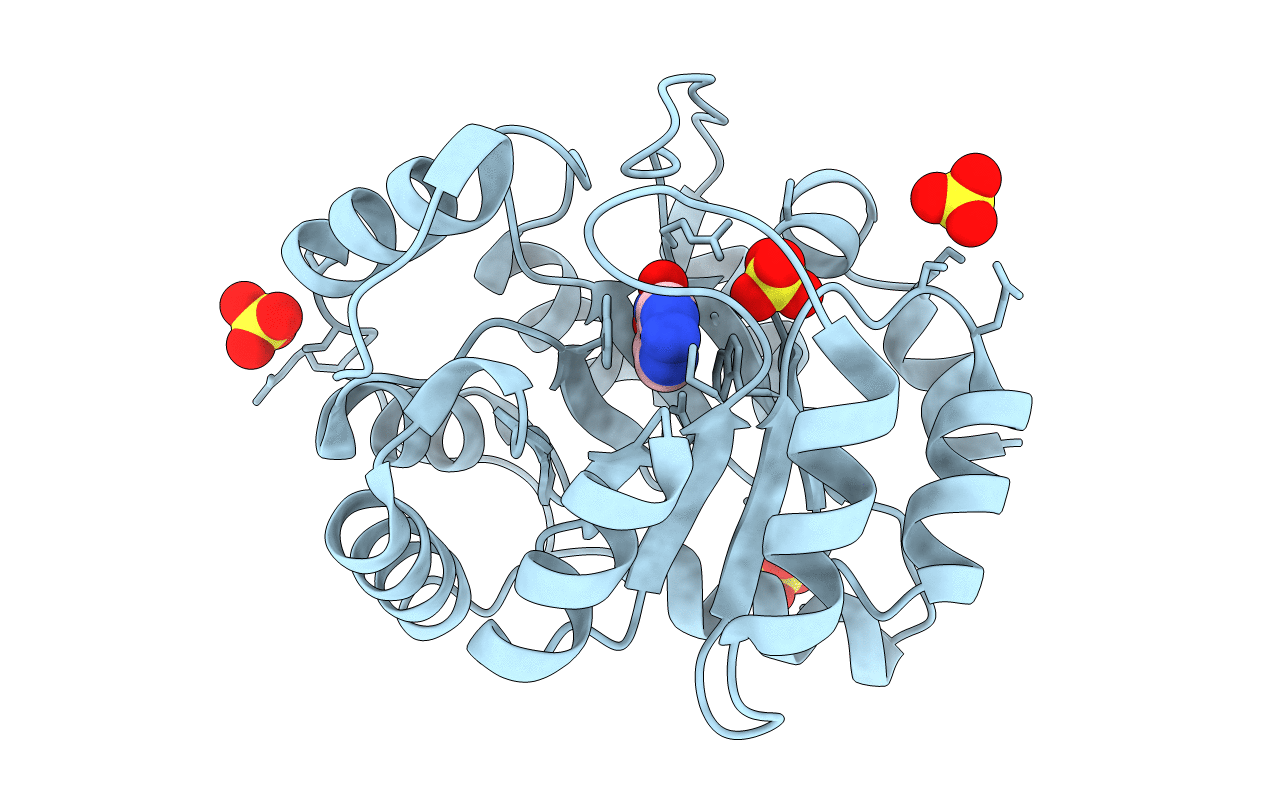
Deposition Date
2019-02-06
Release Date
2019-07-24
Last Version Date
2024-01-24
Entry Detail
PDB ID:
6NW4
Keywords:
Title:
Evolution of a computationally designed Kemp eliminase
Biological Source:
Source Organism(s):
Expression System(s):
Method Details:
Experimental Method:
Resolution:
3.00 Å
R-Value Free:
0.29
R-Value Work:
0.18
R-Value Observed:
0.19
Space Group:
P 31 2 1


